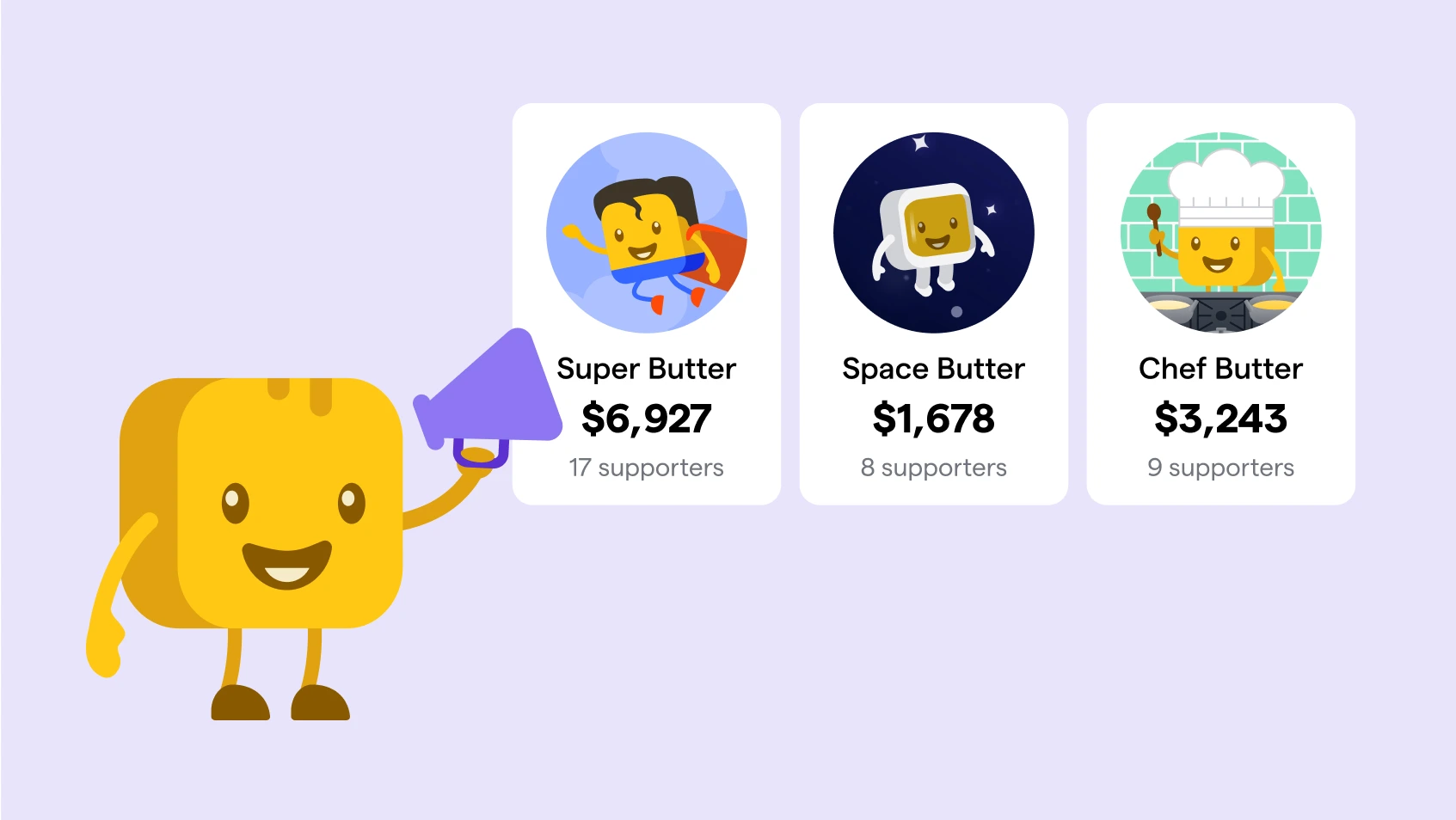Table of contents
Table of contents
Crowdfunding has become one of the most popular and effective ways to raise money. In fact, the average nonprofit crowdfunding campaign raises around $9K!
But, to bring in that kind of money, you need the right platform. Whether you’re raising funds for a creative project, covering startup costs, or running nonprofit fundraising campaigns, there’s a platform designed to help you rally financial support from your audience.
Let’s look at what the top crowdfunding sites for nonprofits and organizations have to offer—and how much they’ll cost you.
9 best crowdfunding platforms
- Givebutter: Free and fun crowdfunding for nonprofits
- Patreon: Crowdfunding for the arts
- GoFundMe: Crowdfunding for personal causes
- Kickstarter: High-stakes crowdfunding
- Donately: Crowdfunding for nonprofits focused on donation forms
- Indiegogo: Flexible crowdfunding for creative endeavors
- Bonfire: Crowdfunding via merch
- Experiment: Scientific research crowdfunding
- WhyDonate: Crowdfunding for European nonprofits
1. Givebutter: Free and fun crowdfunding for nonprofits

Givebutter puts the fun in crowdfunding, with free, custom fundraising pages, events, and auctions designed for donor engagement. You can get up and running in minutes, and each campaign includes an interactive supporter wall where you can share updates and exchange GIFs, comments, drawings, and photos with your donors. Plus, Givebutter accepts just about every payment method under the sun.
Even better, Givebutter’s crowdfunding platform for nonprofits offers the most features with the least amount of fees and fully transparent pricing. With peer-to-peer campaigns, event ticketing, auctions, and donor management tools, you can keep growing your community of support long after your crowdfunding campaign ends.
👍 Best for: Nonprofits, including community & faith-based organizations, charities, schools, and teams
💸 Fees: Givebutter's core fundraising tools are free to use when optional donor tips are enabled—your nonprofit pays $0, backed by the Givebutter Guarantee. If you turn tips off, a flat 3% platform fee and standard processing fees apply, which you can choose to pass on to donors, make optional, or cover yourself.
What users like about Givebutter
Givebutter understands the barriers that keep most from making quick donations. As a donor, it takes fewer clicks than other crowdfunding sites and accepts various forms of payment. Givebutter easily integrates into our organization's website too. — Givebutter review, Vanessa G.
What users dislike about Givebutter
I honestly struggle to come up with downsides. I would say the only thing that ever feels like it hinders fundraising is brand recognition. Fewer people are familiar with Givebutter, which I think leads to hesitation to donate. This isn't a reflection of the platform itself, just how it seems to struggle to stand out in a sea of crowdfunding platforms. — Givebutter review, Lu H.

Crowdfund for your cause, for free
2. Patreon: Crowdfunding for the arts

Patreon is a crowdfunding site where fans can pledge recurring donations (from $5 to $50+ per month) to support their favorite content creators. In return, they typically receive perks like exclusive content or mail-order goodies. Fans and artists both enjoy the platform because it allows creative freedom and empowers small business growth.
Nonprofits can also use Patreon to fundraise by offering tiered membership and exclusive perks for supporters. You can get access to crowdfunding pages with messaging tools, member-only livestreams, analytics, e-commerce, and various integrations.
However, this crowdfunding source does come with limitations. Creators can’t launch one-off fundraising campaigns for specific projects. And Patreon’s pricing model relies on high platform fees, which take a sizable chunk out of any earnings from creatives and nonprofits.
👍 Best for: Artists with a following like podcasters, journalists, and creative entrepreneurs
💸 Fees: 8 - 12% platform fee, plus payment processing fees (varies), payout fees, and more.
What users like about Patreon
I like how you are able to set different tiers and prices based on your business. I also like how Patreon handles the financial portion. — Patreon review, Tamarah B.
What users dislike about Patreon
I think the pro version of the software is a little expensive for small business owners and content creators. — Patreon review, Patrick B.
3. GoFundMe: Crowdfunding for personal causes

Families, individuals, and nonprofits create crowdfunding pages with GoFundMe to raise money for a range of needs including unexpected medical expenses, memorials, or emergency support in the aftermath of natural disasters.
GoFundMe is free to start, with a standard processing fee of 2.9% + $0.30 per donation. Donors can optionally add a tip to support the platform; tips do not reduce the donation amount received by the fundraiser beyond standard processing fees.
👍 Best for: Individuals fundraising for personal costs and creating campaigns to support nonprofits
💸 Fees: 2.9% + $0.30 payment processing fee (deducted from each donation)
What users like about GoFundMe
One of the best things about GoFundMe is simply its name recognition. Supporters feel comfortable giving through GoFundMe because they know the website. — GoFundMe review, Nicholas S.
What users dislike about GoFundMe
Compared to that of my organization's new platform, Givebutter, fees on GoFundMe are rather high. — GoFundMe review, Nicholas S.
4. Kickstarter: High-stakes crowdfunding

One of the most recognizable names in the crowd fundraising site space, Kickstarter, allows creators to set up custom campaign pages where they offer various “rewards” in exchange for contributions. This platform is built to fund concrete, shareable projects—like books, games, and technology prototypes—which must go through an approval process before going live. Campaigns can span between one and 60 days.
Notably, nonprofits on Kickstarter cannot create campaigns for general charitable donations to fund their programs or advocacy work, and proceeds from a Kickstarter project may not be donated to nonprofits.
Kickstarter also operates on an all-or-nothing model. If a project doesn't hit its funding goal, every cent gets returned to a project’s backers—no ifs, ands, or buts.
While this is not the platform for last-minute crowdfunders, Kickstarter remains a popular choice for many arts-based nonprofits and creators who use the platform to fund their work.
👍 Best for: Time-bound creative projects like films, recordings, and product launches
💸 Fees: 5% platform fee, and 3% + $0.20 transaction fee (or 5% + $0.05 per transaction if the donation is under $10)
What users like about Kickstarter
I think that when people think of crowdfunding, they often think of Kickstarter. I like using Kickstarter since it was one of the first major crowdfunding websites that became known to the mainstream. — Kickstarter review, Emery D.
What users dislike about Kickstarter
The cost of transaction fees is somewhat on the high end compared to other creative crowdfunding websites. — Kickstarter review, Emery D.
5. Donately: Crowdfunding with donor management
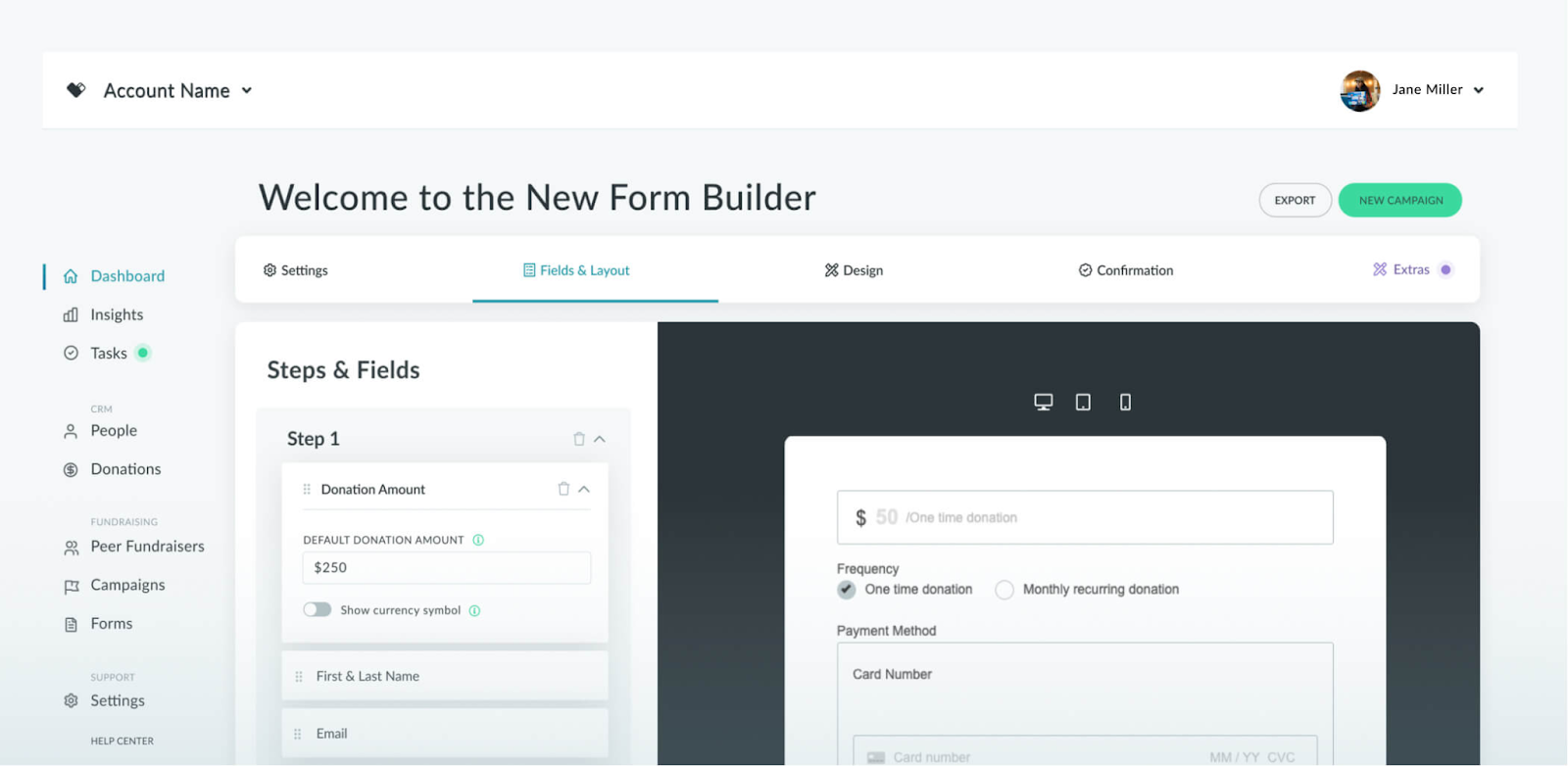
Donately is a modern fundraising platform built for nonprofits and mission-driven organizations that need flexible crowdfunding and long-term giving infrastructure.
Unlike traditional crowdfunding sites focused on one-off campaigns or creative projects, Donately supports donation-driven crowdfunding alongside customizable donation forms, peer-to-peer fundraising, recurring giving, and campaign templates that scale across multiple initiatives.
Organizations can launch branded fundraising pages, embed forms directly on their website, offer suggested giving levels and recurring options, and automate receipts and acknowledgments. Donately also includes built-in donor management, reporting, and integrations with CRMs and marketing tools, so teams can track performance and supporter activity without juggling disconnected systems.
👍 Best for: Nonprofits and mission-driven organizations that want flexible crowdfunding with built-in donor management and long-term giving tools
💸 Fees: Varies by plan (platform fee and payment processing fee apply)
What users like about Donately
“Donately makes it easy to help donors with their payment information or other details, and it is easy to track recurring donations and failed payments.” — Donately review, Rebecca E.
What users dislike about Donately
“Paying an annual fee in addition to transaction fees seems excessive.” — Donately review, Dakota L.
6. Indiegogo: Flexible crowdfunding for creative endeavors

Like Kickstarter, Indiegogo is a crowdfunding platform designed to fund innovative projects, products, and inventions, catering to small businesses and artists. But unlike Kickstarter, Indiegogo allows nonprofits to raise funds as well. Additionally, with the platform’s “In Demand” feature, creators can continue raising funds and engaging with supporters after their initial 60-day campaign ends.
Indiegogo offers two types of crowdfunding: fixed funding (you keep what you raise), and flexible funding (you must hit your fundraising target to keep your earnings)—both of which require a minimum of $500 raised. Crowdfunding pages enable creators to share their stories, add pictures and videos, invite other campaign members, and track data with Google Analytics.
However, Indiegogo lacks event management features and livestreaming functionality and doesn’t accept a wide variety of payment methods. And in addition to charging platform and payment processing fees, Indiegogo automatically keeps an additional 5% of your earnings for a reserved funds account (to cover potential donor refunds). Even if no refunds occur, Indiegogo will hold these earnings for up to six months.
👍 Best for: Launching projects from tech startups, artists, and other creative endeavors
💸 Fees: 5% platform fee, 3% + $0.20 transaction fee + transfer fee (varies)
What users like about Indiegogo
It's easy to navigate the website, sign up, and also easy to find great campaigns. You get updated about the progress of the campaign as much as you want and also get emailed about new additions. — Indiegogo review, Sven B.
What users dislike about Indiegogo
The fees are high, there are some glitches, and promotion for campaigns isn't great. Most of the money raised will likely be from people you already know. — Indiegogo review, Madelyn H.
7. Bonfire: Crowdfunding via merch

Bonfire is a crowdfunding website built entirely around t-shirt campaigns. Users can design custom t-shirts, totes, and other merchandise to sell through donation pages or an online merchandise store. While the platform is free to use, Bonfire takes a cut of your gross sales to pay for manufacturing, sourcing, printing, and shipping costs.
Bonfire is extremely user-friendly, offering users the option to design a page from scratch or start from a pre-designed template. While individuals and nonprofits can launch peer-to-peer fundraising campaigns and supporters can contribute extra dollars to your cause, ongoing donor engagement, and other fundraising activities are not offered on the platform.
👍 Best for: Quick t-shirt campaigns
💸 Fees: 8% donation processing fee (reduced to 3.5% for verified nonprofits)
What users like about Bonfire
I love that it is easy to create merchandise to sell on this website. It’s very useful to be able to print your designs and make t-shirts and other merch. I love that I can make t-shirts of my own art with Bonfire. — Bonfire review, Marie-Claire P.
What users dislike about Bonfire
Right now, their product choices are a bit limited to their competitors, that seems to be the trade-off for ease of use. — Bonfire review, Nonprofit employee
8. Experiment: Scientific research crowdfunding

Experiment is a niche crowdfunding website designed to help researchers fund their projects and share results with the public. It brings attention (and funds) to important research, allowing scientists to pursue directions that may not receive traditional funding.
The platform uses an “all or nothing” model, requiring fundraisers to achieve their total by the deadline. Projects must also meet specific criteria and have a well-defined hypothesis. Once live on the site, researchers can use their page to share their story, connect with their audience, and raise funds for their project.
👍 Best for: Funding scientific research
💸 Fees: 8% platform fee plus a 3-5% payment processor fee, and a 2.9% + $0.30 transaction fee
9. WhyDonate: Crowdfunding for European nonprofits
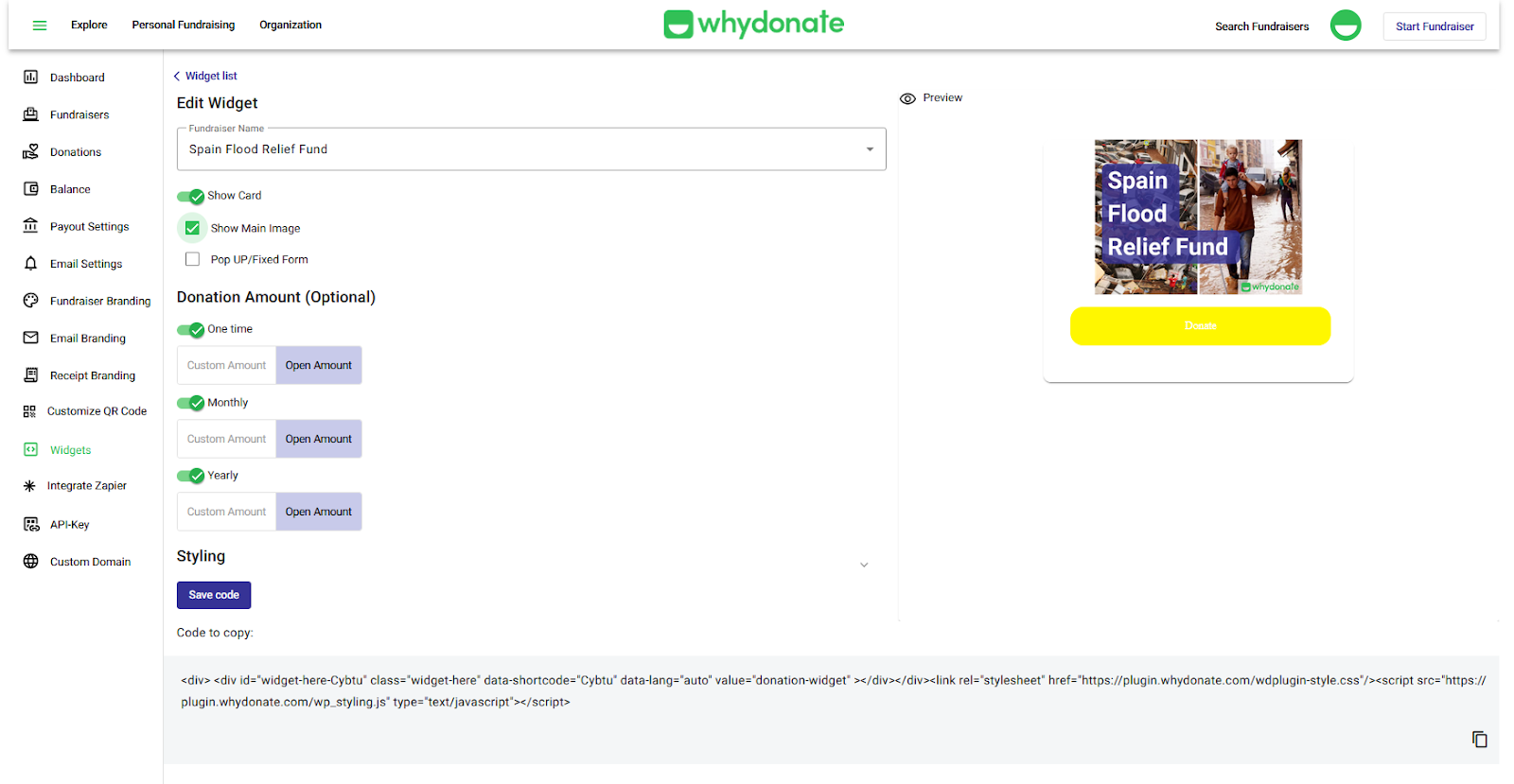
WhyDonate is a Netherlands-based crowdfunding platform designed to help nonprofits, individuals, and social causes raise funds internationally. The platform supports campaigns in multiple languages and currencies, making it particularly useful for organizations with European audiences.
With WhyDonate, you can create custom fundraising pages, run peer-to-peer campaigns, and accept donations through various payment methods. The platform operates on a transparent pricing model with no platform fees—you only pay standard payment processing fees.
👍 Best for: European nonprofits and international campaigns
💸 Fees: 0% platform fee; payment processing fees vary by region (typically 1.9% + €0.25 for European payments)
What users like about WhyDonate
“The best part is that WhyDonate offers 0% platform fees on donations and has fantastic customer service.” — Suchi K., WhyDonate user
What users dislike about WhyDonate
“Service is great, but I miss a function where I can withdraw specific amounts.” — Robin A. Wennekes, WhyDonate user
Crowdfund better with Givebutter
Whether you're raising funds for your child's elementary school or launching a grassroots nonprofit, the best crowdfunding websites can rally people together. If you’re asking supporters to donate toward your fundraising goal, choose a top crowdfunding website with a top-tier user experience and affordable fees.
Givebutter is the best crowdfunding site for nonprofits because it offers a wide range of free features with no subscriptions, platform fees, or add-on costs. Givebutter's all-in-one fundraising platform comes complete with branded online fundraising pages and forms, event ticketing, auctions, email marketing and text messaging, third-party integrations, and a nonprofit CRM—all for free.
Ready to see how Givebutter can boost your crowdfunding efforts? Create a free account to launch your crowdfunding campaign today!
Best crowdfunding sites FAQs
Which crowdfunding site is best?
As the #1 rated nonprofit software company on G2 across multiple categories, Givebutter is the top choice for crowdfunding. It’s user-friendly, offers built-in donor engagement tools, and provides multiple ways to collect donations—including fundraising pages, text-to-give, and livestream fundraising.
Is crowdfunding a good way to raise money?
Yes! Crowdfunding is one of the easiest ways to rally support quickly.
Givebutter helps you raise more by offering free fundraising pages, social media integrations, and engaging donor features like supporter feeds and goal bars. Whether you're an individual or a nonprofit, it’s the best way to turn supporters into lifelong donors.
How much do crowdfunding sites take?
Unlike many platforms that charge a percentage of your funds raised, Givebutter’s 100% transparent tip-or-fee model ensures that you only pay the standard 2.9% + $0.30 payment processing fee.
Donors can even cover the fee, meaning your nonprofit keeps more of what it raises!
Is there a better option than GoFundMe?
Yes! Givebutter is a more powerful alternative to GoFundMe, especially for nonprofits. While GoFundMe is great for personal fundraisers, Givebutter offers peer-to-peer fundraising, event ticketing, and donor engagement tools all in one place. It’s built for long-term fundraising success, not just one-time campaigns.
Plus, it’s one of the cheapest crowdfunding platforms! Thanks to a 100% transparent tip-or-fee model, Givebutter’s core fundraising features are free.
.svg)
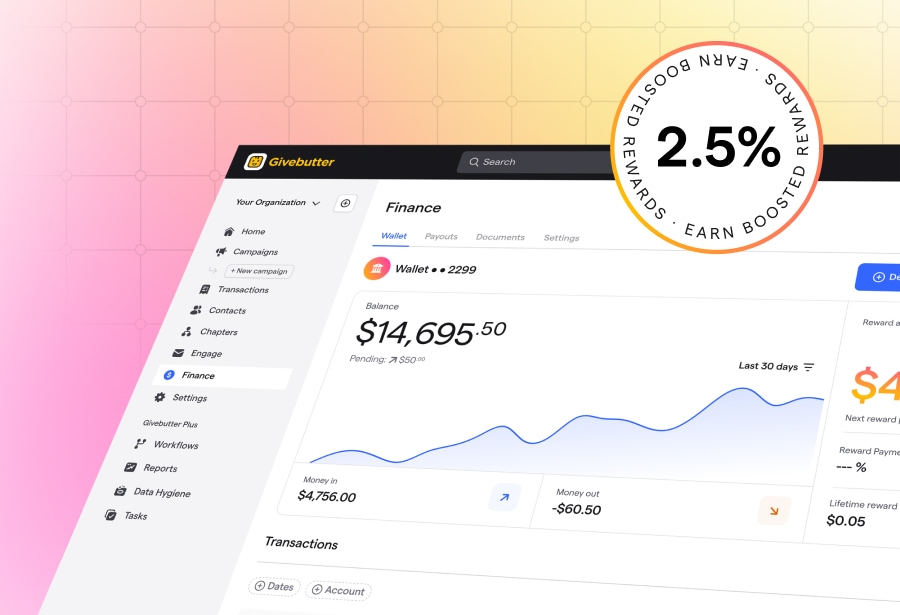
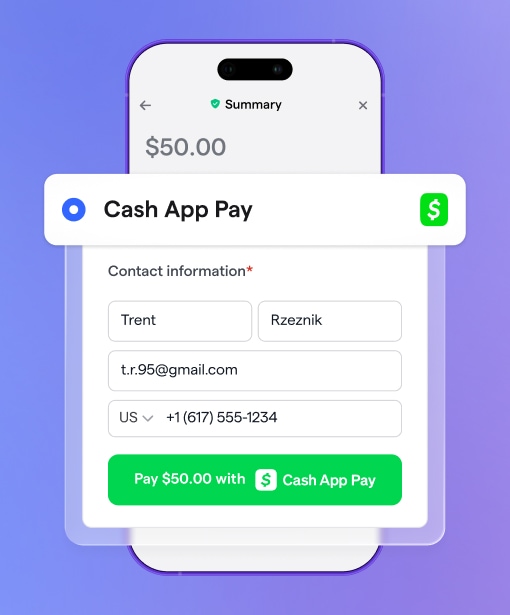




%20(1).png)



.svg)







_4x.webp)




